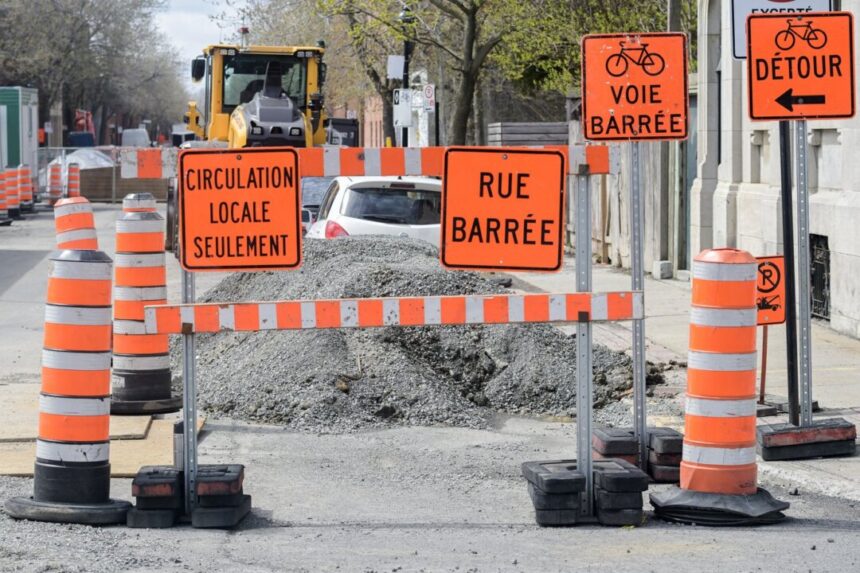Canadian businesses that suffer revenue losses due to city construction should be compensated, according to the Canadian Federation of Independent Business (CFIB).
The CFIB, a non-profit organization representing over 97,000 small and medium-sized businesses nationwide, recently sent an open letter to mayors and councilors on June 6. The letter urged local governments to consider implementing construction mitigation programs similar to those in Montreal and Calgary.
Loeppky and Yoo referenced a CFIB report indicating that between 2012 and 2017, 41 percent of small businesses experienced disruptions from municipal construction projects. The report also revealed that approximately 65,000 businesses were compelled to borrow money, relocate, or close due to revenue loss.
They highlighted the escalating issue, with 72 percent of businesses reporting disruptions from construction projects in the past five years.
The disruptions have led to decreased business sales and brought about increased noise, dust, and debris in the affected areas.
“Operations are also disrupted by challenges with courier deliveries and accessibility for customers and staff due to limited parking,” the letter stated.
The letter revealed that Canadian businesses have collectively lost an estimated 22 percent of revenues over the past five years and had to allocate nearly $53,000 per business for expenses related to construction, including property damage, cleaning, higher insurance premiums, and temporary relocation costs.
“Far too often, roads remain torn up and storefronts inaccessible long past planned completion dates, prolonging the disruption period for small businesses,” the letter emphasized, suggesting that city governments should incentivize contractors to finish projects early and penalize those who cause delays.
Sixty-eight percent of small businesses believe they should receive financial compensation when construction projects impact their operations, as stated by Ms. Loeppky and Ms. Yoo.
Mitigation Measures Proposed
The letter called for municipalities to establish construction mitigation programs, such as the one in Montreal, which provides financial assistance to affected businesses.
Loeppky and Yoo mentioned that Quebec City has a similar program where businesses can claim up to $30,000 annually if they can prove a significant sales loss.
The authors suggested that municipalities could offer “tax holidays” to businesses impacted by construction projects if direct compensation is not feasible.
“If direct compensation is not viable, municipalities should consider providing tax holidays (i.e., temporarily waiving property taxes for affected businesses),” they recommended, noting that property taxes can be burdensome for small businesses when sales are low, as the tax is not based on profit.
“Even businesses experiencing significant revenue declines due to public infrastructure projects are still required to pay these taxes,” they added.
Communication Concerns
In addition to revenue loss concerns, the authors highlighted communication issues related to construction projects, with 32 percent of businesses stating they did not receive prior notice before work commenced and 26 percent receiving four weeks or less notice.
The letter also raised concerns about the communication methods used to inform businesses about construction projects, with 24 percent receiving government notifications and 39 percent hearing directly from the construction team. Ms. Loeppky and Ms. Yoo suggested that municipalities should improve planning and communication with local businesses before initiating construction projects.
Can you revise this?
Source link








